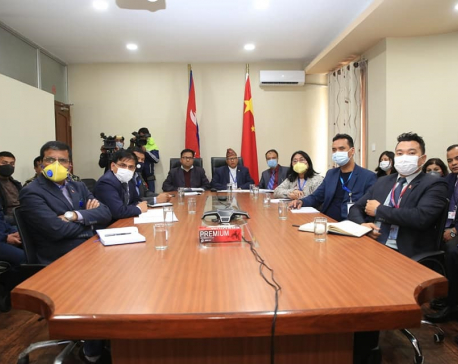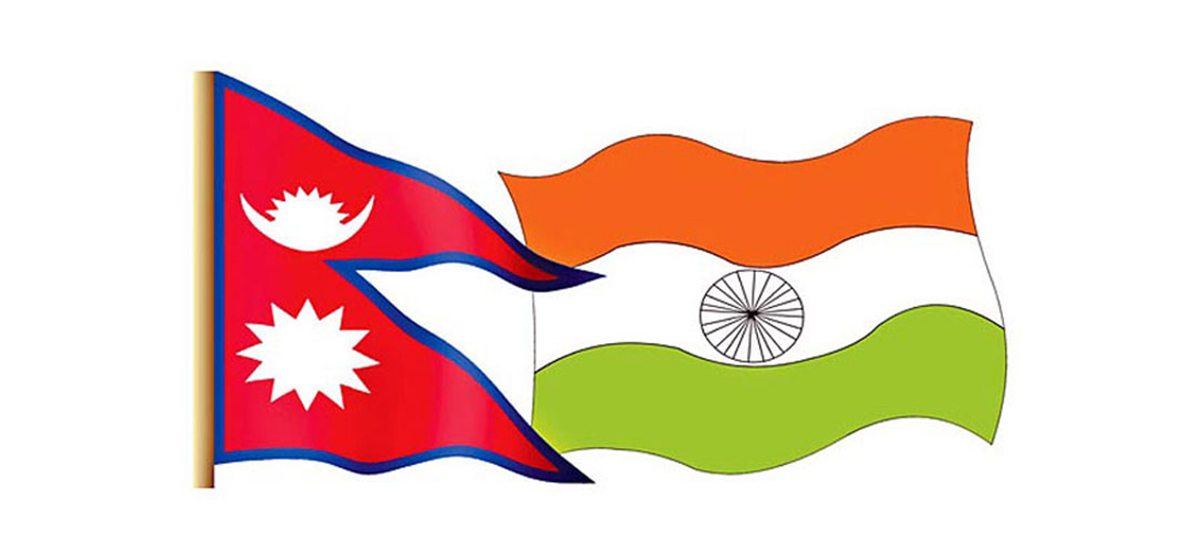
OR
Suicide cases on the rise, mental health experts warn of a ‘grim situation’
Published On: May 21, 2020 07:00 AM NPT By: Ashim Neupane | @ashimnep

They say the government must come up with a concrete plan before it’s too late
KATHMANDU, May 20: Earlier this month, police found two dead bodies in Butwal Sub-metropolitan City-19 in Rupandehi district. The police investigation found that the reason behind their death was suicide. They had committed suicide together. This is just an example of a suicide case, which has increased by a significant number after the government enforced a nationwide lockdown on March 24.
The data compiled by the Nepal Police shows that suicide cases across the country have increased by a staggering 20 percent, which mental health experts say have connection to the global pandemic. They also predict a ‘grim situation’ after the pandemic, as the rate of mental health illness is expected to see a significant rise.
In the first month of the nationwide lockdown, a total of 487 people committed suicide. The number is 20 percent more in comparison to the month of Falgun (mid-February to mid-March), when the number stood at 410.
“The increase in the number of suicide cases is somehow linked to the lockdown and the global COVID-19 pandemic. During the lockdown, people suffered from mental illness such as anxiety, depression, fear of getting illness, among different problems. All these reasons have some connections behind the increase in the number of suicide cases,” Dr Sagun Ballav Pant, who is an assistant professor of psychiatry at the Tribhuvan University Teaching Hospital (TUTH).
Prior to the lockdown, the number of suicidal cases used to stand at 400 on an average every month.
As the lockdown order is almost into the third month, people have already started to face financial problems due to job losses. Likewise, the fear of getting infected with coronavirus is also making people anxious about the global pandemic.
Dr Pant further adds: “It’s not like only low-income families suffer the most during the crisis. For instance, the country was celebrating “Visit Nepal 2020”, and tourism entrepreneurs had invested a huge amount in the sector. But after the event was cancelled, their [entrepreneurs] hope of getting the return went in vain.”
Giving such instances, Dr Pant said that suicide rate is likely to increase in the coming months as people are likely to face financial crisis.
Likewise, academic calendars are also less likely to resume even if the lockdown ends. “Children are stuck at home. Offices have directed staff to work from home. This has created panic among young people. So, mental health problems are likely to increase,” Dr Pant told Republica, adding that people from all walks of life are likely to face mental health problems in the pandemic.
While the World Health Organization has already predicted that there will be a rise in the number of mental health problems due the global pandemic, Dr Pant also said that the scenario of Nepal will be different after six months as the pandemic will leave a negative psychological impact on people.
“Mental health problems have always been a stigma in Nepal. If someone is going through difficult times and shares about quitting on life, people talk about being “chicken-hearted”. This encourages suicide,” said Dr Pant, adding that the world will face a mental health pandemic after COVID-19, and Nepal will not be an exception.
Likewise, Ritesh Thapa, director and consultant psychiatrist at Rhythm Neuropsychiatry Hospital said that the nationwide lockdown has affected mental health of people.
“During the lockdown, half a dozen patients visited me. They were anxious about the lockdown and global pandemic. They were scared. A majority of them were scared about their financial situation,” Dr Thapa said, adding that there has been a negative impact of global pandemic on people’s mental health.
“If the government doesn’t do something about it, people will suffer from mental health problems for years after this pandemic. The government has only focused on containing the spread of the virus. At this time, the government must think about mental health problems people are facing,” Dr Thapa told Republica.
Likewise, Dr Pant feels that the modern world has many other requirements than “food, shelter and clothes”. “Young people have missed recreational activities. Movie theaters are shut. Also, couples have not met for a long time. Modern world has modern problems, so the government needs to come up with new lockdown modality,” said Dr Pant, adding that people also need to speak up about mental health problems.
“If suicidal thoughts come, people need to share with friends and family members. Suicide is a permanent solution to a temporary problem. It can be stopped through the support of a closed one. The TUTH has a 24-hour mental health hotline number,” Dr Pant adds.
{The 24-hour mental health hotline number of TUTH is: 9840021600}
Dr Pant says that the government should focus on mental health problems people are facing. Giving the examples of suicide cases among frontline health care workers in the United Kingdom and India, Dr Pant says that those working in frontline are more at risk. “The government must think before it’s too late,” he said.
You May Like This

Indian migrant workers crowd trains, defying virus curfew
NEW DELHI, March 22: Indian migrant workers attempting to reach their home villages crowded a railway station in the northern... Read More...

China holds video conference with various countries including Nepal on prevention and control of COVID-19
KATHMANDU, March 20: China is holding video conference with more than 10 countries including Nepal to share its knowledge on prevention and... Read More...

Indian PM Modi proposes COVID-19 Emergency Fund to combat coronavirus in South Asia
KATHMANDU, March 15: Indian Prime Minister Narendra Modi has proposed to setup a COVID-19 Emergency Fund to combat deadly virus in... Read More...




Just In
- WB to take financial management lead for proposed Upper Arun Project
- Power supply to be affected in parts of Kathmandu Valley today as NEA expedites repair works
- Godepani welcomes over 31,000 foreign tourists in a year
- Private sector leads hydropower generation over government
- Weather expected to be mainly fair in most parts of the country today
- 120 snow leopards found in Dolpa, survey result reveals
- India funds a school building construction in Darchula
- Exploring opportunities and Challenges of Increasing Online Transactions in Nepal







_20220508065243.jpg)







Leave A Comment